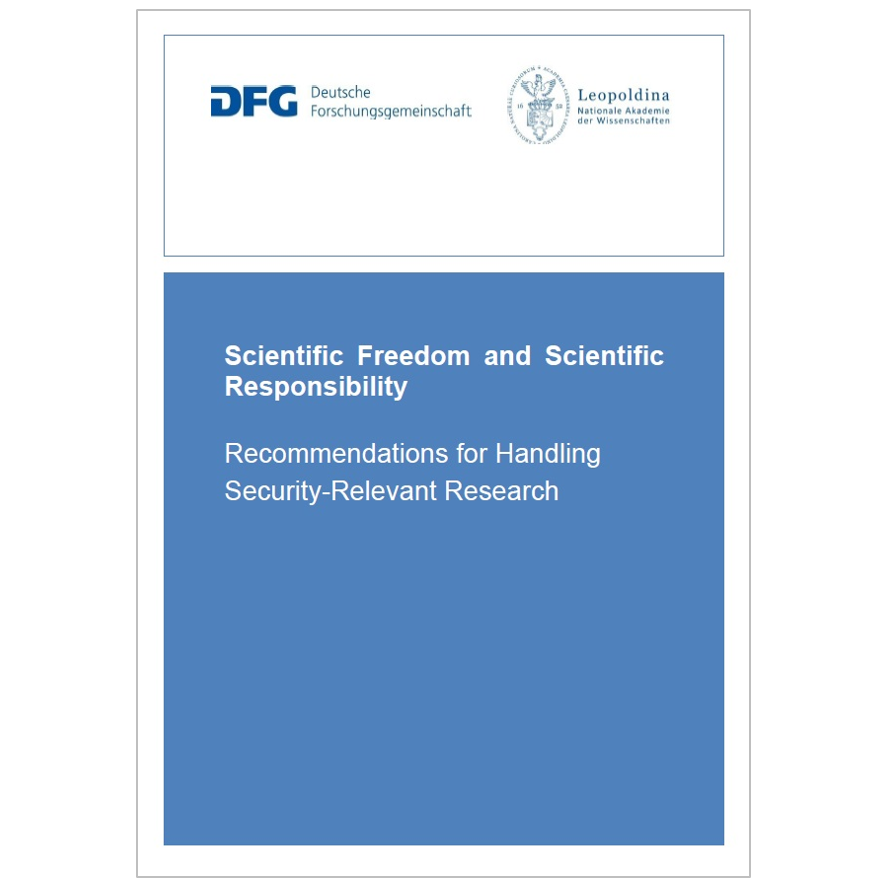1st version, updated 2022.
Reference
German Research Foundation & National Academy of Sciences Leopoldina (Eds.) (2014) Scientific Freedom and Scientific Responsibility: Recommendations for Handling Security-Relevant Research (p. 19).
Research plays a fundamental role in ensuring progress. Freedom of research, which is enshrined in the German Basic Law, is a fundamental requirement in this respect. Yet free research is also associated with risks. These risks result primarily from the danger of useful research findings being misused (known as the dual use dilemma). Legal regulations can only cover these risks to a limited extent.
The German Research Foundation (DFG) and the National Academy of Sciences (Leopoldina) urge researchers not to content themselves with just complying with legal regulations. After all, researchers’ knowledge, experience and freedom give them a special ethical responsibility that goes beyond legal obligations. In addition, research institutions should create framework conditions for ethically responsible research. The self-regulatory tools of science are highly significant in this regard. They are founded on a high level of familiarity with the subject and can react flexibly.
The first section of the DFG and Leopoldina’s recommendations are aimed at individual scientists. They need to be aware of the danger of misused research. In critical cases, these individuals must draw on their knowledge and experience to make a personal decision about what is responsible in their research. In doing so, they need to weigh the opportunities offered by the research against the risks for human dignity, life and other important values. The present recommendations specify these considerations in terms of necessary risk analysis, measures for reducing risk, evaluating the publication of research results, and abstaining from research as a last resort. The primary goal in all of this is to carry out and communicate research in a responsible way. In isolated cases, a responsible decision on the part of the researcher may even mean that a high-risk project can only be carried out following a research moratorium or not at all.
The second section of the recommendations is aimed at research institutions. They need to raise awareness of the problem, convey the required knowledge of legal constraints on research and support corresponding training measures for scientists. Research institutions need to develop ethics rules for handling security-relevant research that go beyond compliance with legal regulations. Each institution should set up a special committee on research ethics to implement these rules and to advise scientists.


